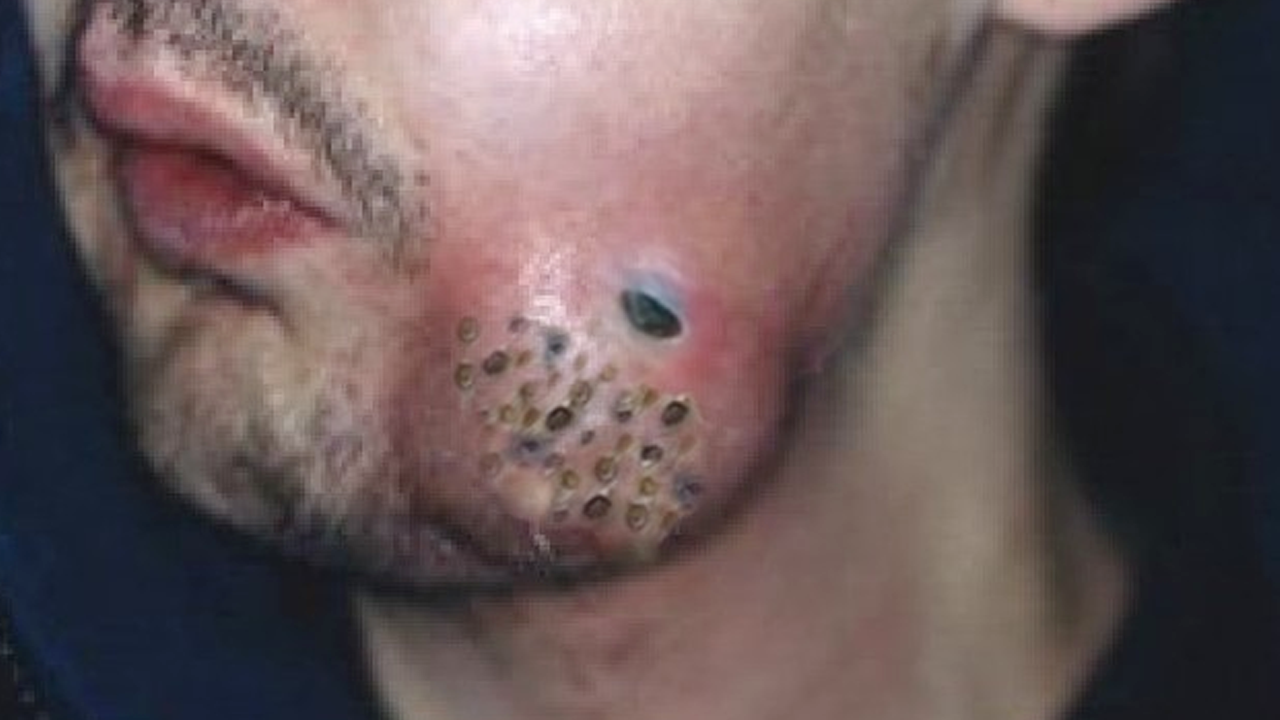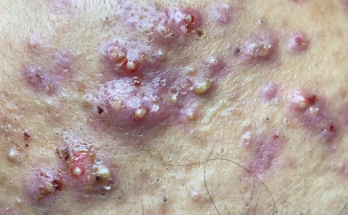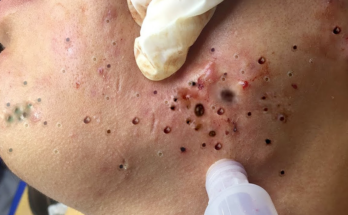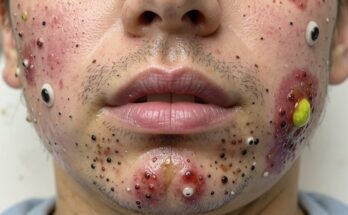Understanding and Tackling Blackheads: A Comprehensive Guide
Blackheads, also known as open comedones, are a common skin concern affecting many. This guide will delve into the root causes of these blemishes, explore effective prevention strategies, and outline various treatment options, from at-home remedies to professional procedures.
What Exactly Causes Blackheads?
The formation of a blackhead begins with a clogged pore. This blockage is a mixture of dead skin cells, excess sebum (oil produced by your skin), and bacteria. The trapped debris oxidizes upon contact with air, resulting in the characteristic dark color. These pesky imperfections often appear on the face (nose, chin, forehead), but can also surface on the chest and back.
The Culprits Behind Clogged Pores:
Several factors contribute to the development of blackheads:
- Excess Sebum Production: Overactive sebaceous glands lead to an overproduction of oil, increasing the likelihood of pore blockage.
- Dead Skin Cell Buildup: The accumulation of dead skin cells on the surface of your skin can contribute significantly to pore congestion.
- Hormonal Fluctuations: Hormonal changes, particularly during puberty, menstruation, or periods of stress, can trigger increased sebum production, exacerbating blackhead formation.
- Comedogenic Products: Certain cosmetics and skincare products containing ingredients that clog pores (comedogenic) can worsen the condition.
- Insufficient Cleansing: A poor cleansing routine allows dirt, oil, and dead skin cells to accumulate, creating the perfect breeding ground for blackheads.
- Bacterial Activity: The bacteria Cutibacterium acnes plays a role in the inflammatory process associated with acne, including blackheads.
Preventing Blackhead Formation: A Proactive Approach
Preventing blackheads requires a consistent and gentle skincare routine:
Establishing a Solid Skincare Regimen:
- Gentle Cleansing: Wash your face twice daily with a gentle cleanser formulated for acne-prone skin. Look for cleansers containing salicylic acid (BHA), which helps exfoliate pores. Brands like CeraVe and La Roche-Posay offer excellent options.
- Regular Exfoliation: Exfoliating 2-3 times per week helps remove dead skin cells and prevent pore clogging. Choose chemical exfoliants such as salicylic acid (penetrates pores), glycolic acid, or lactic acid (remove surface dead skin). Avoid harsh physical scrubs that can irritate your skin.
- Clay or Charcoal Masks: Incorporate clay or charcoal masks 1-2 times a week to absorb excess oil and draw out impurities from the pores. These masks often contain ingredients like kaolin, bentonite clay, or activated charcoal.
Treating Existing Blackheads: Safe and Effective Methods
While prevention is key, existing blackheads can be addressed through various methods:
At-Home Treatments:
- Topical Treatments: Consider over-the-counter (OTC) topical treatments containing retinoids (like Differin Gel, containing adapalene), benzoyl peroxide (kills acne-causing bacteria), or niacinamide (reduces inflammation and sebum production).
- Careful Extraction: While tempting, avoid squeezing or popping blackheads at home. This can lead to scarring and infection. If you must attempt extraction, steam your face first to open pores, use clean hands or a comedone extractor, and disinfect the area thoroughly.
Professional Treatments:
For more stubborn or severe cases, consult a dermatologist or licensed esthetician:
- Chemical Peels: These use acids like glycolic or salicylic acid to deeply exfoliate the skin.
- Microdermabrasion: This procedure uses fine crystals or a diamond tip to physically exfoliate the skin’s surface.
- HydraFacial: This treatment cleanses, extracts, and hydrates the skin using a specialized machine.
- Laser Therapy: Laser treatments can reduce oil production and kill acne-causing bacteria.
- Prescription Retinoids & Oral Medications: For severe acne or cases unresponsive to OTC treatments, your dermatologist might prescribe stronger retinoids or oral medications like antibiotics or isotretinoin.
What to Avoid When Dealing with Blackheads
Certain habits and products can worsen blackheads:
- Squeezing or popping blackheads: This increases the risk of infection and scarring.
- Heavy or greasy makeup: These can clog pores and exacerbate the problem.
- Over-washing: While cleansing is important, over-washing strips the skin of its natural oils, leading to increased oil production.
- Harsh physical scrubs: These can irritate the skin and worsen acne.
This comprehensive guide provides a roadmap for understanding, preventing, and treating blackheads. Remember, consistency is key, and seeking professional help when necessary can ensure the best outcome for your skin. Always consult a dermatologist for personalized advice and treatment plans.



